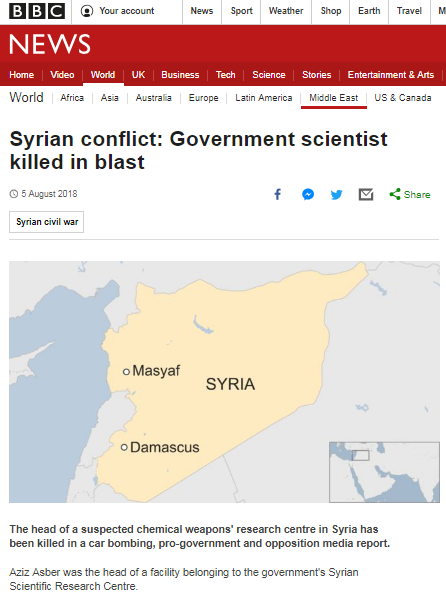1) Khaled Abu Toameh takes a look at Lebanese reactions to a proposed new law concerning the management of Palestinian refugee camps.
“Like most Arab countries, Lebanon has long treated Palestinians as second-class citizens. It has been depriving them of basic rights, including citizenship, employment, heath care, education, social services and property ownership. The vast majority of the 450,000 Palestinians living in Lebanon do not have Lebanese citizenship.
In 2001, the Lebanese Parliament passed a law prohibiting Palestinians from owning property, and Lebanese law also restricts their ability to work in as many as 20 professions. Lebanon continues to ignore calls by various human rights groups to the Lebanese authorities to end discrimination against Palestinians.”
2) At the INSS, Eldad Shavit and Sima Shine examine ‘The Dispute Between the United States and Iran – Scenarios and Implications’.
“The dispute between the United States and Iran is taking place on two levels: The American administration is adhering to its policy of placing “maximum pressure” on the Iranian regime, while Iran is adopting a new policy in place of the “tolerance” that it had demonstrated thus far, in order to show the United States, and especially the other countries that signed the Nuclear Agreement—particularly the European partners—the costs they are liable to pay for continuing the sanctions. At the same time, in an attempt to prevent a deterioration, given the tensions that have developed recently in the Gulf, efforts are being made to find channels of dialogue between the two countries. At present, assuming that Iran is not interested in “upsetting the apple cart,” one of following three main scenarios could develop: a continuation of the gradual and cautious erosion (over time) of the Iranian commitments according to the agreement (JCPOA); Iran’s quick withdrawal from its commitments, including from fulfilling the IAEA’s Additional Protocol, and significantly reducing cooperation with the agency; or the beginning of new negotiations with the Trump administration.”
3) Mosaic Magazine has a podcast interview with Yaakov Katz about his new book.
“On September 6, 2007, shortly after midnight, Israeli planes advanced on Deir ez-Zour in the desert of eastern Syria. Israel often flew into Syrian air space as a warning to President Bashar al-Assad, but this time there was no warning and no explanation. The planes were on a covert mission with one goal: to destroy a nuclear reactor being built, with the aid of North Korea, under a tight veil of secrecy. The pilots succeeded brilliantly, and Israel stopped Syria from becoming a nuclear-armed state: a nightmare in the Middle East.
That’s the story Jerusalem Post editor-in-chief Yaakov Katz tells in his latest book Shadow Strike: Inside Israel’s Secret Mission to Eliminate Syrian Nuclear Power.”
4) MEMRI reports on the situation in Sudan.
“The honeymoon is over in Khartoum. There was a short period of ambiguity and hope between April 11, 2019 when Sudanese President Omar Al-Bashir was removed from power by his own generals and June 3, 2019 when security forces brutally killed over a hundred peaceful demonstrators and subsequently called for snap elections in seven months.
During that short seven-week period, there was a chance, and even some real indications, that a very Sudanese solution – fragile, confused, but hopeful – would have been found along the lines of previous transitions from military dictatorship to civilian rule. Hopes that 2019 would be something of a repeat of 1964 and 1985 have, at least for now, been dashed although it should not be forgotten that both previous transitions to democracy were brief and led back to dictatorship after a few years. Sudan is closer to the edge and it seems that a much more violent future could be in the cards if another misstep is made.”



